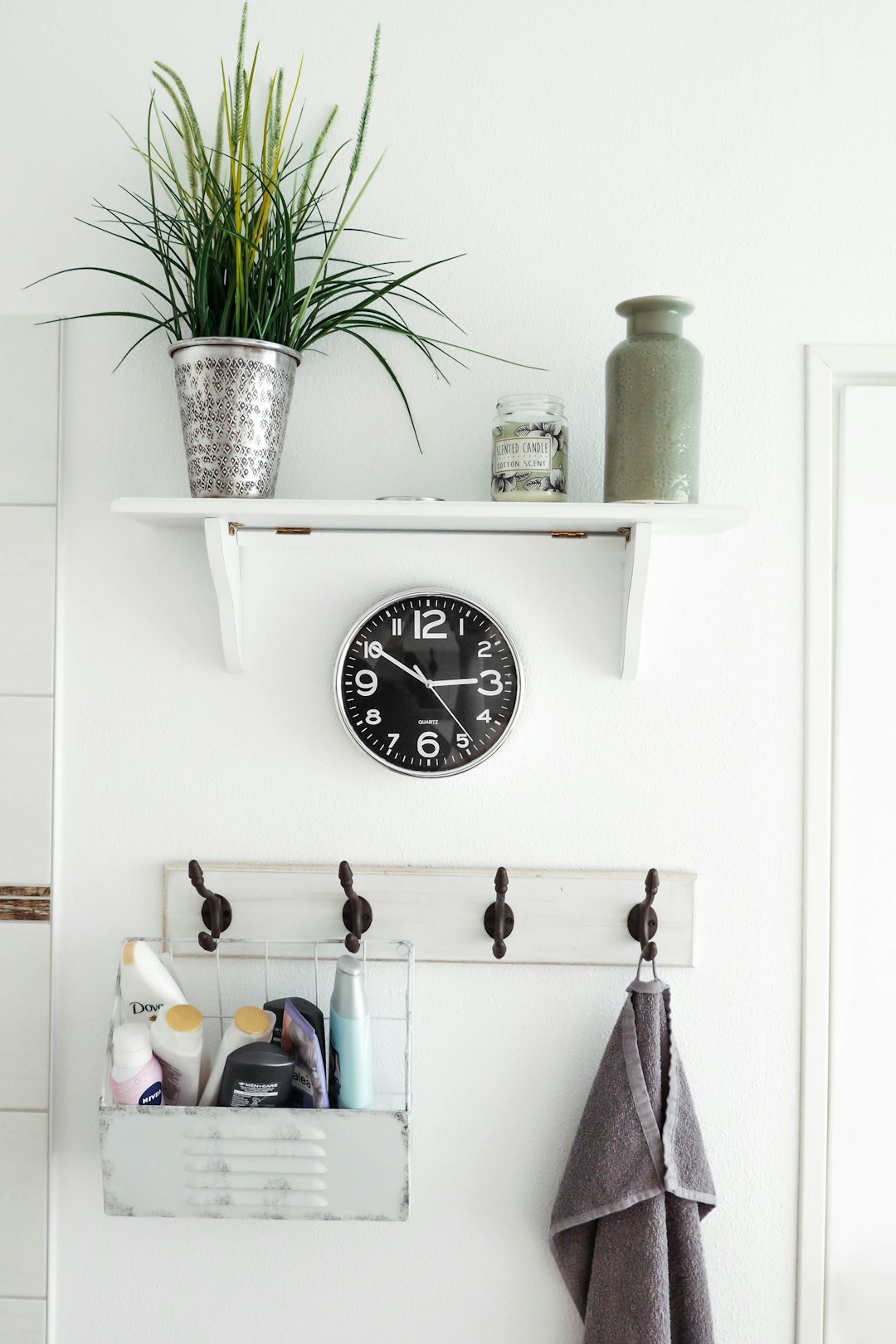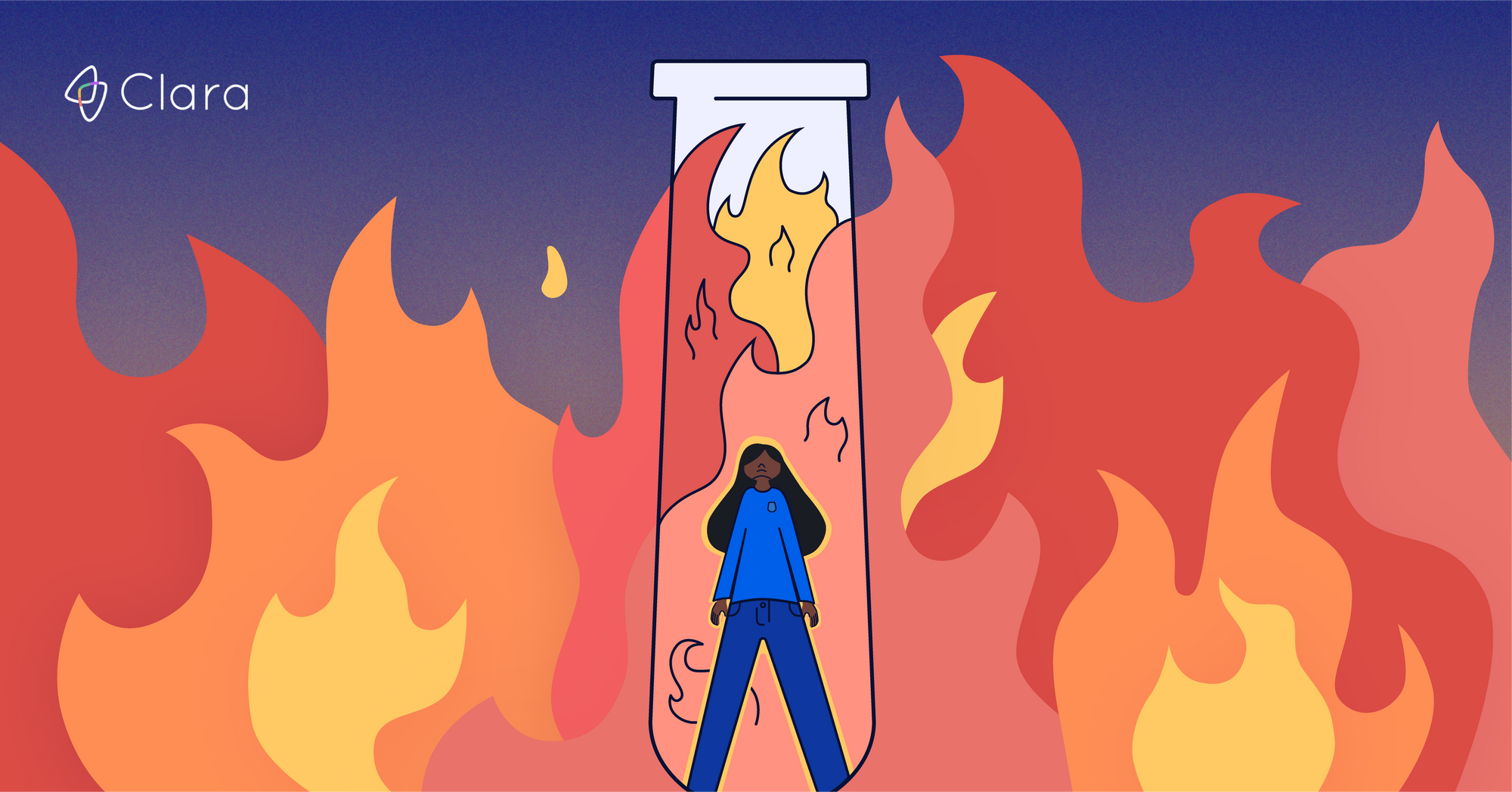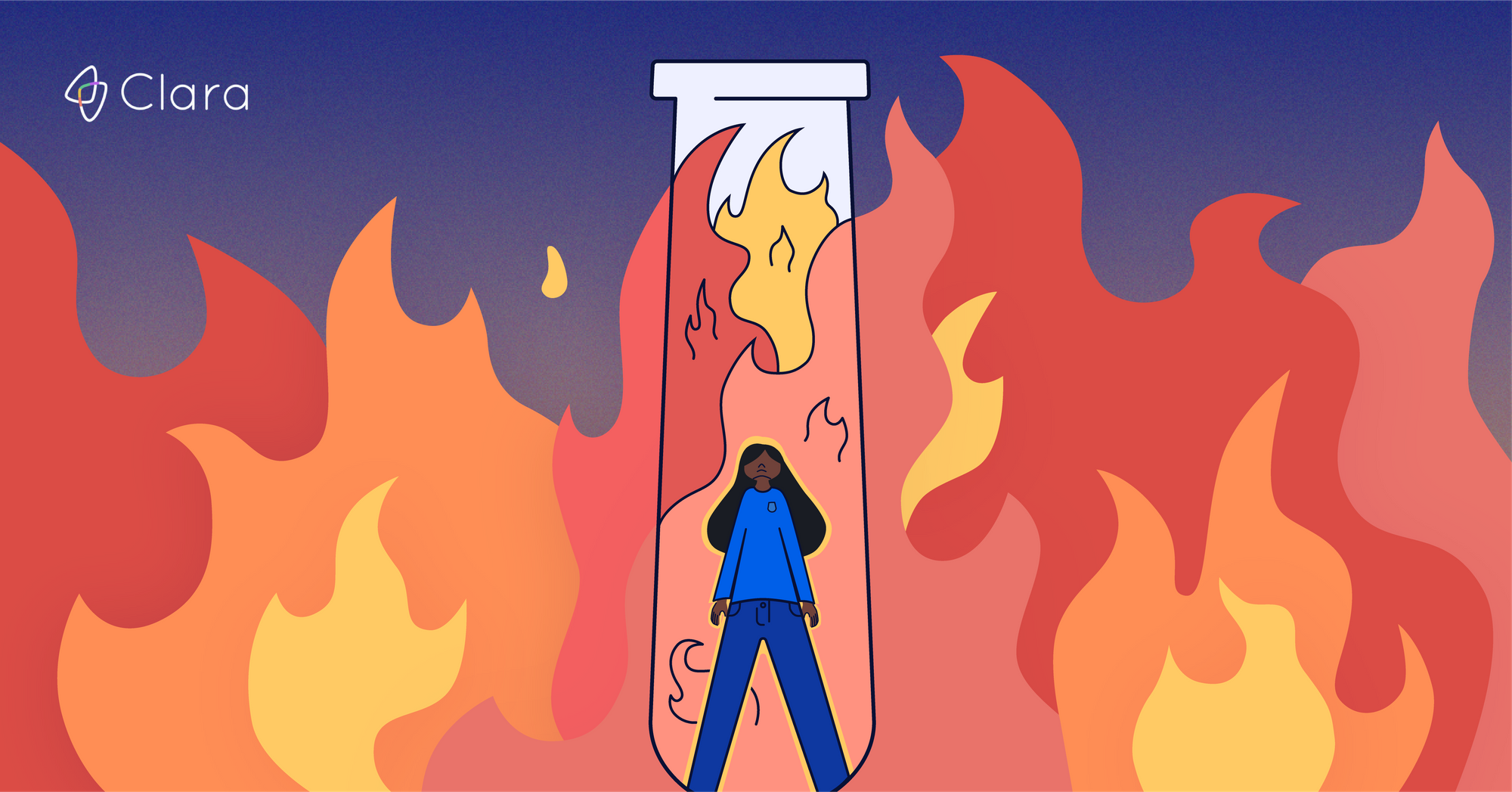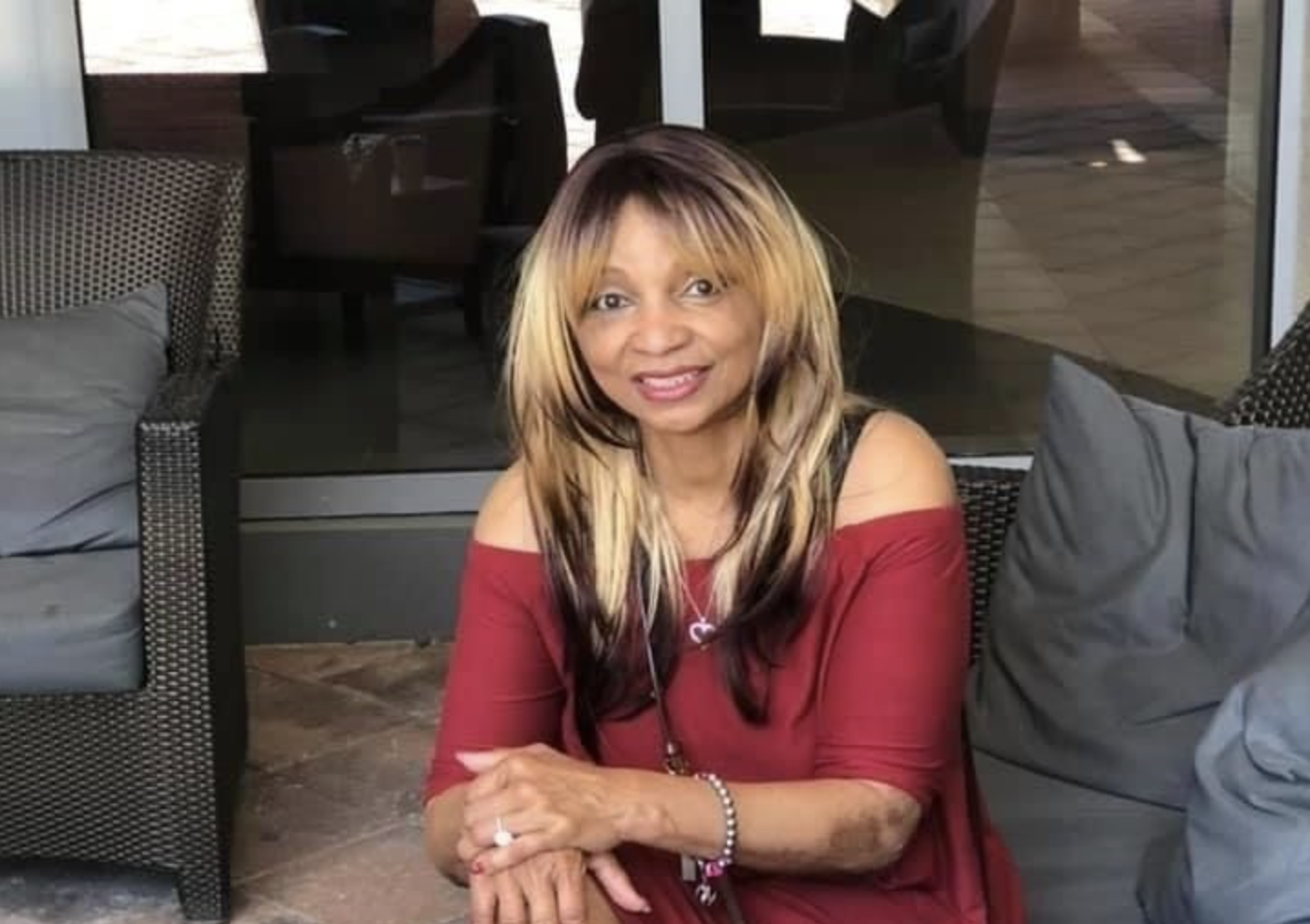Our latest Patients Have Power episode is called "I get to be the first one." (You can subscribe to the podcast at Apple Podcasts, or listen to it with the media player above).
In this episode, I'm accompanied by Ali, a runner, podcast host, writer, and patient advocate. She's joining me between training runs and her jam-packed work schedule to talk about her Crohn's, overcoming her fear of clinical trials, and banning her husband from... the bathroom?
Below is a transcript of the episode for your reading pleasure!
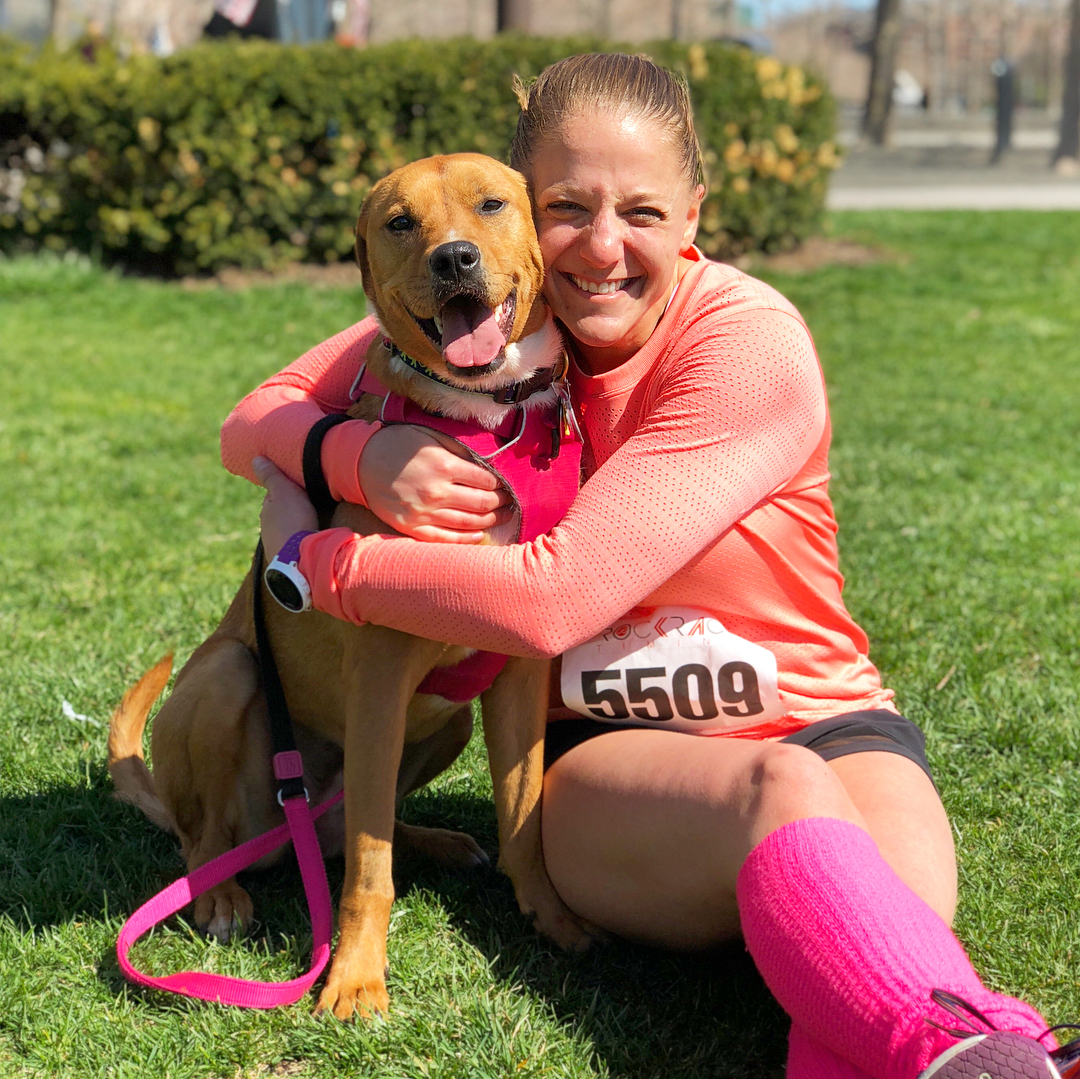
Lilly Stairs: Hello everyone and welcome to the Patients have Power Podcast! I am so super excited because today we have Ali with us, better known as Ali on the Run all over social media.
She is an incredible advocate that I had the pleasure of meeting at an advisory board that we did together and was blown away by her enthusiasm, the way that she's overcome her illness in so many ways, and the way that she's really let it empower her and become this incredible athlete. So super excited to talk to her today!
Ali, thank you so much for being with us.
Ali Feller: Yay! Thank you so much for having me.
Lilly Stairs: So I'd like to start by having us jump in and kind of giving us an overview of your patient journey thus far, do you think you could walk us through that?
Ali Feller: Yes, I can. The very long winding road of the very long and winding journey, yes.
Lilly Stairs: Yes.

Ali Feller: So I have Crohn's disease I technically have Crohn's colitis but you know I like to say it's because I'm an overachiever, that's why I have both. I kind of, I only got that diagnosis a couple of years ago, but I've had Crohn's since I was seven, so it's just easier to say I have Crohn's disease that's kind of how I identify is a Crohn's kid.
Lilly Stairs: Yep.
Ali Feller: I was diagnosed when I was seven, I was basically on a big family vacation because of course it, you know the big medical things have to happen when they're least convenient.
Lilly Stairs: Oh yes, of course.
Ali Feller: Our entire family had gotten together, meaning like cousins, grandparents, everyone, finally got together for the big family reunion, and I was so sick that my parents had to leave to take me to the hospital.
So, sorry ruined the family vacation, but that is when I got diagnosed and it was pretty crazy because it was 1992, I was seven years old, no one knew what to do with me, no one really knew what Crohn's disease was. I had to go to different hospitals, I lived in Contoocook, New Hampshire there weren't, I'm sure there's great doctors near there but it wasn't really at the forefront of medical research at the time.
So, eventually they sent me to Dartmouth, I met with a Pediatric Gastroenterologist, Dr. Edwards, if you're listening, I love you so much to this day! She did an endoscopy and diagnosed me with Crohn's.
So, basically I would get sick when I was younger, they would put me on Prednisone and that would make my cheeks nice and puffy but it would get me better within like 24 hours, I mean it worked so fast for me back then.
Ali Feller: But as I got older, as I got more stressed out, as I started doing more with my life, the flares got much more troubling and far less convenient, we'll say.
For me they came at times of big life changes or big really stressful times. Like:
- When I went away to college
- When I studied abroad in Australia
- When I got my first job
- When I got promoted to my dream job, and that was really tough
That all these big exciting things would happen, and I couldn't get out of the bathroom to enjoy them. I was in pain, I was exhausted, and I had fevers so the way that my flare ups tend to happen is.
For me it's mostly the stomach pain and the urgency, the running for the bathroom, the not knowing if you're going to make it to the bathroom, which is never fun, never not embarrassing even as much as we talk about it, it just kind of always sucks and I've had some really bad flares over the past few years.
Ali Feller: I'm 32 now so, oh my gosh I've had this disease for almost 30 years, is that math correct? That's insane.
Lilly Stairs: Oh my gosh.
Ali Feller: But it's frustrating that I feel like I still don't fully have a grasp on it, because I've been on so many medications.
I'll spare you the list, but I am sure your list is the same, it's from Prednisone to Remicade to Humira to all the 5-ASA drugs. I did a clinical trial for awhile, and now I'm on Stelara, which for the most part we think is working.
But at the same time I had a flare last year that lasted about a yearm and I think the only thing that got me out of it was my doctor putting me on a 30 day dose of Uceris which is the steroid that goes right to your colon and targets all the good stuff.
Lilly Stairs: Interesting.
Ali Feller: Yeah, so I'm feeling great right now which is like, I mean you know it's the best feeling and it's like I wake up in the morning and even if I have a stressful day ahead or if my day is gonna just be sending all those emails that I put off I'm like jazzed about it, because I'm not spending it in the bathroom. That's the boiled down version.
Lilly Stairs: Well, I know and I know it's tough I'm sure that there were so many like, you could probably talk about this for I don't know what, 24 hours straight and not even cover everything.
But, I think what is really reassuring in what you just talked about, as difficult as it's been when you've been through all of these moments that you got to have in your life, like you still went abroad and studied in Australia, and you got your dream job and you did all of those things while living with a chronic illness.
And while it was probably, well not probably most definitely more difficult for you than most people you still got to that, and I think that's a really important thing for so many of our listeners to hear, especially those that have just been diagnosed to have all of those thoughts running through their head. Like, "Oh my gosh am I ever going to be able to live a normal life again?" and you know we all have to make adjustments but I'm really glad to hear that you've been able to do so many of those things.
Ali Feller: Yeah, I've lived a very wonderful life and I'm very fortunate for that. I will also say that I have missed a lot of things, and that you know I think often times like when I'm healthy. I'm smiling all the time and I love life and I'm all about the gratitude, but it is worth nothing when I'm super sick, when I'm flaring I'm very depressed, I'm crying more than I'm not.
Which, I don't recommend, because you're already so dehydrated, the tears are not helping my cause when I do that and I know it, but, I have really dark times and I have had to miss a lot you know.
Lilly Stairs: Mm-hmm.
Ali Feller: My husband and I and those wonderful memories, some of them are a little bit tainted. Like my husband and I celebrated our one year wedding anniversary by going to Paris, which when we planned that trip was gonna be the best thing ever.
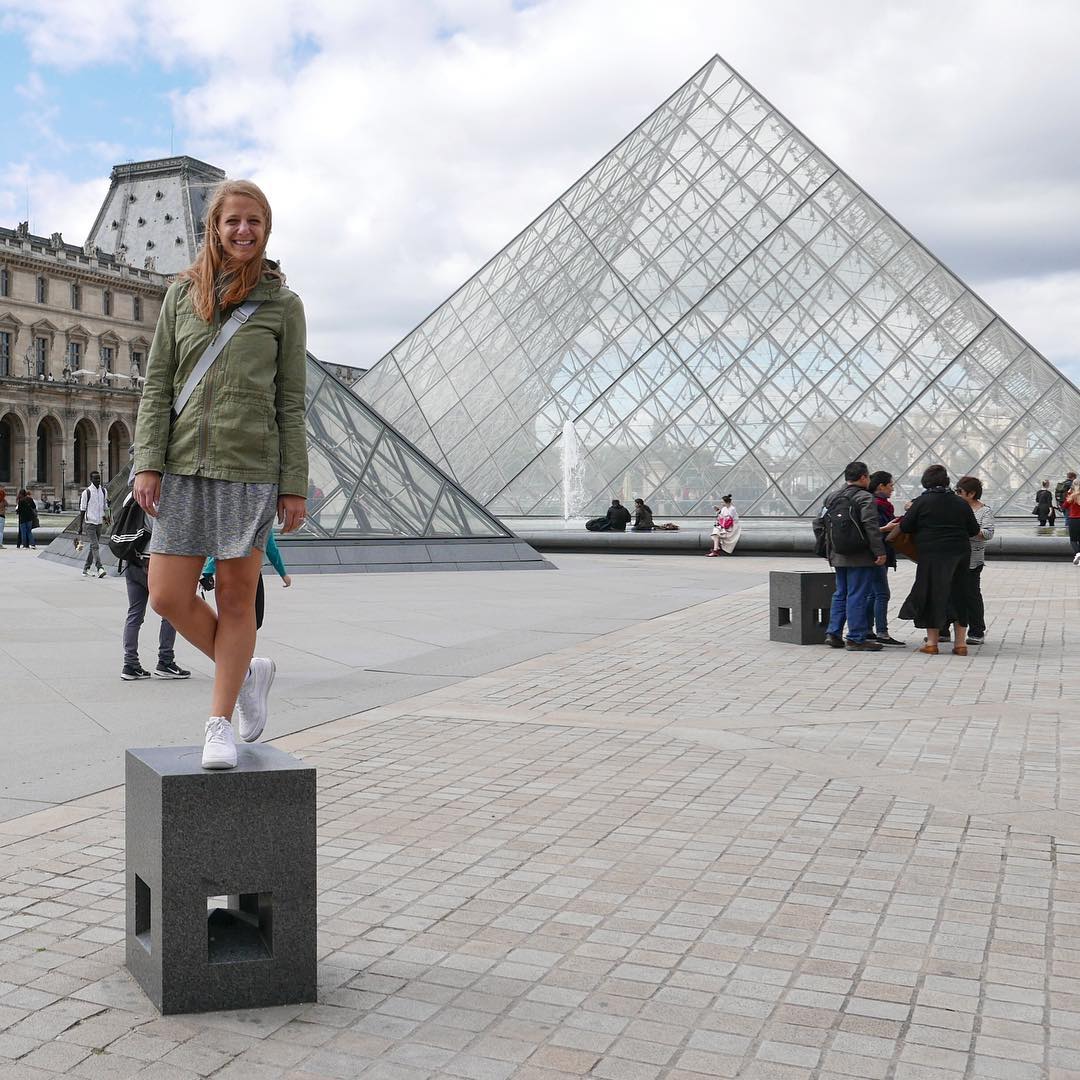
I was so sick and I was like I still want to go, like maybe getting out of my normal routine is what will make me feel better.
Instead, I literally spend that entire trip in different bathrooms in Pairs and the Parisian's were not super you know, you think getting into a Starbucks in Manhattan is difficult? Getting through all those key locks and pass codes they have? The bathrooms in Pairs were not as, um, as handy as I needed them to be.
And I got kicked out of more than one that I was not supposed to be using, so you know, it's like yeah we got to go to Paris and we have these gorgeous photos to show for it, but like right now I still remember how much pain I was in and how nervous I was the whole time.
Ali Feller: So, it's finding a balance, and I think for me, it's knowing that the opportunities to have amazing times will come around again eventually, for every marathon I've trained for that I didn't get to run because I ended up getting sick, I have to tell myself that there will be another one. Because there will.
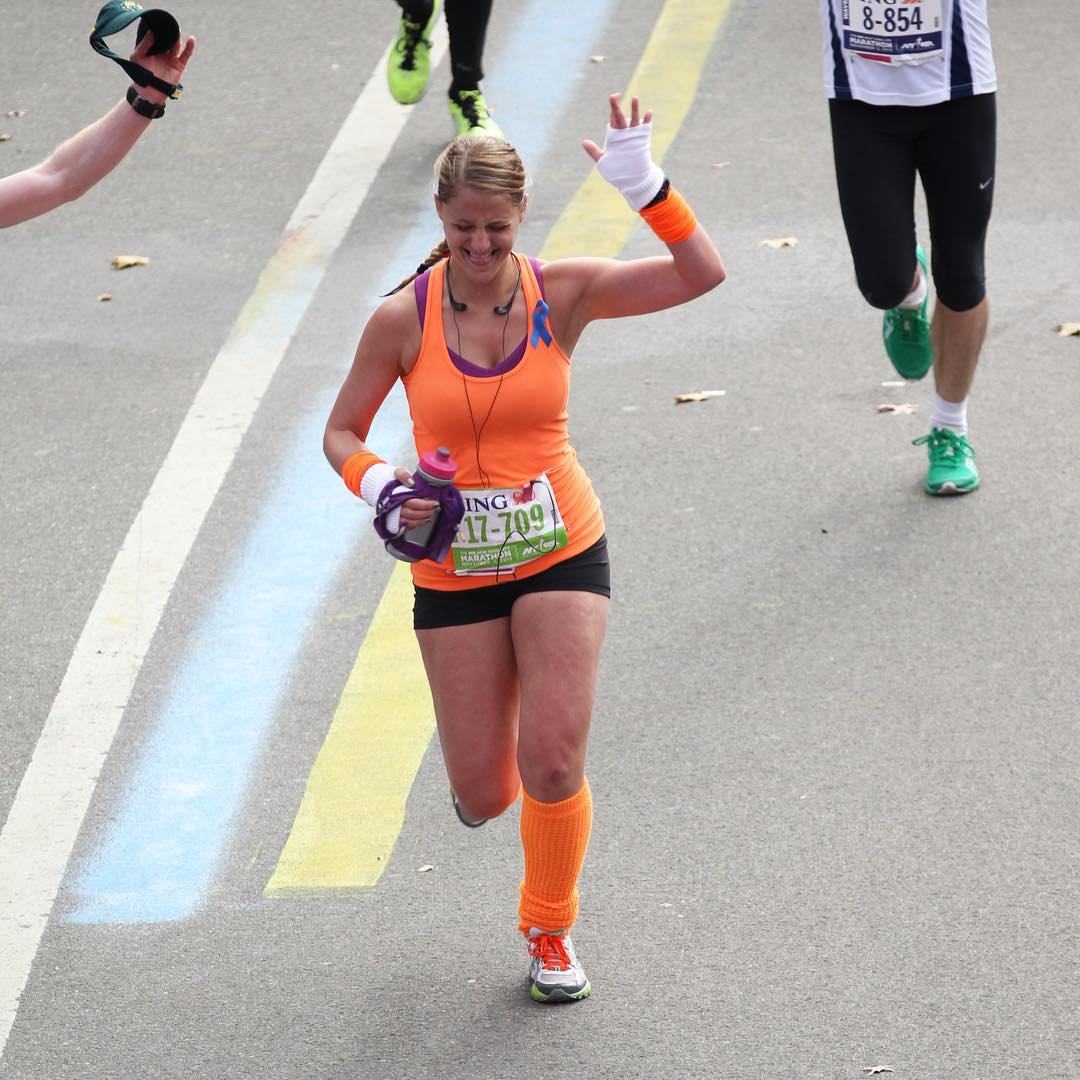
Lilly Stairs: Yeah.
Ali Feller: There's, you know, marathons aren't going anywhere, Pairs hopefully isn't going anywhere, like there will be more opportunities. It's very hard in the moment to say this isn't my chance for this right now, and I know that.
Like I have done that, and it sucks, but you'll get your chance.
Lilly Stairs: Well I really appreciate that honesty, I think that's another important thing for all of us to understand especially in the age of social media, it was interesting because you were like yeah I had all these beautiful photos.
So I'm sure you know it's easy to post the photos and say "Oh look at this beautiful trip we're on in Paris", but seeing behind that and being able to open up and say yeah but, I was in bathrooms the entire time.
Ali Feller: Exactly.
Lilly Stairs: Really enjoying the scenery as much as I, as I could have been? No, probably not and so thank you for that honestly because I think that's something that so many people need to hear. It's nice to know that there are other people who have been through this and as you were saying all that, a lot of it resonated with me too.
Ali Feller: I mean I studied abroad in Australia when I was a junior in college, and my doctors (again, this was long enough ago that they didn't know what to do with me) just put me on so much Prednisone. I think I started at like 80 milligrams and day and that's a lot.
Lilly Stairs: Oh my gosh, and you're kind of a little thing, 80 milligrams is a lot!
Ali Feller: It was a lot, and we didn't taper for a long time because it wasn't working so they would bump it back up.
I can't even look at my photos from the four months I lived in Australia because, I mean, I'll have to send them to you, you wouldn't even recognize me. Like I've showed people those photos and they're like "Where are you in this photo?" Because my face is like the size of Australia.
I don't look like myself, and that made me really self conscious the time. And like you know all my girlfriends were like "Let's go out and meet Australian boys!", I mean lets go to class and study, that's totally what we were doing... but you know we would go out and I wouldn't even want to like meet people because I just didn't look or feel like myself. So you know the body image side of all this is a whole different animal.
Lilly Stairs: Sure.
Ali Feller: Is a whole different beast but... I think the one constant of having a chronic illness is knowing that it's unpredictable and there are going to be a lot of ups and downs.
Lilly Stairs: Absolutely. Well thank you for sharing that!
Lilly Stairs: I wanna shift gears for a moment here. As you know, at Clara we're working to help support and connect patients to clinical trials, and so I'm really fascinated to hear about your clinical trials experience.
Ali Feller: Yeah.
Lilly Stairs: It sounds like you've been through a lot of different treatments but, how did you end up on a clinical trial? How did you hear about it? What was your experience like? Can you kinda walk me through that?
Ali Feller: Sure. So I was living in New York City, and at the time the doctor's office at the hospital that I was at was affiliated with Cornell, which is also part of New York Presbyterian. It's on the Upper East Side in Manhattan, great, great hospital affiliation and the practice I was in is called the Jill Roberts IBD center.

I always recommend it to people who are in the city because they really do a nice job there and they're super smart. I had been sick for so long and we'd tried so many things, and you know I had done the Methotrexate for awhile, I had done Humira (which wasn't working), and one of the practices I was at, they did a lot trials right in house. They had a full time research assistant whose job it was to find these people and you know I had heard of clinical trials, but in my mind, my gut reaction to that was "No I don't want to be a guinea pig."
Lilly Stairs: Mm-hmm - that's most people's gut reaction.
Ali Feller: Yeah. But then you know I had a long talk with - he's now my husband - but I don't know what he was at the time boyfriend, roommate, or fiance, it was one of those stages. I think he was my boyfriend at the time, but we had a long talk about it and he's very into like reading about new research and all that, and it was like you know let's not see this as I'm a guinea pig.
"Let's see this as I get to be at the forefront of them developing new medicine, I get to be the first to test it and see if it works"
Also, it felt like the only option. Stelara was not yet approved for Crohn's disease and so we tried and we couldn't get it and so my doctor, they talked to me, they said you know this drug were trying is similar to Stelara and we think it could work for you and so I got enrolled and it worked. I mean that's what got me into remission, and I had been in that flare for two years.
Ali Feller: So I am so grateful for the trial. Of course, you know, then it ended and I wasn't thrilled about that. I knew that was the case, I got to be on it for just a little over two years, so I got a really good stretch while I was on that.
That is also the time period when I got married, went on my honeymoon so that worked out really well for me, and I mean you know more than anyone that the idea of being in a clinical trial automatically sounds scary, but so do a lot of things.
Lilly Stairs: Mm-hmm.
Ali Feller: And you know, to me, once I shifted my thinking to like - "Oh my gosh this is such cutting edge technology in medicine and I get to be the first" - once I learned to look at it as an opportunity instead of something that was scary, it shifted my thinking and I loved being part of it.
It was a lot of work, in terms of I had to go in really regularly, I had to fill out so many charts and rate my everything and take my temperature every day, but I kinda felt like it was the least I could do to give back to the medical research field, that's hopefully developing a drug that could help a lot of people have a much better quality of life (myself included).
Lilly Stairs: Yeah, absolutely. I love that attitude.
I think that's really, it's inspiring to hear that actually and did you, so after you weren't able to access the drug, has the drug been approved?
Ali Feller: No, not yet.
Lilly Stairs: Not yet, okay. So are you like, anxiously awaiting its approval?
Ali Feller: Um, yes and no. I mean, they did tell me they thought it would be a while because of what stage it was in - they said it would be years, not months or weeks. So once the trial ended, I said "you know I'm in remission now, I kind of want to see what I can do not being on medicine".
And my doctor said "I don't think that's a good idea" and I was like "I don't think you're a good idea". And I did it anyway, and I started flaring again within I think it was like within a couple months.
Ali Feller: Fortunately, in that time period Stelara had been approved, so they were able to start me on that.
Lilly Stairs: Got it. And they're similar mechanism of action?
Ali Feller: Yeah, that's what they tell me.
Lilly Stairs: So can I ask about the time that you were off your meds, because this is something that a lot of patients talk about in the chronic illness space a lot of patients are like "Yes this medicine is great and it has put me in remission!"
And this is actually something I'm personally wrestling with right now. "Do I want to be on medicine long term?" And we all know that our disease can go into remission and then it can flare and then it can into remission then it can flare.
What was your experience like when you went off of medication, did you make any changes to your lifestyle to help maintain anything or did you kind of just give it a shot to see if you could go off the medicine without doing anything?
Ali Feller: Yeah you know, I would love to say I totally took charge of my health and I changed my diet and I did everything that seemed right, but I didn't.
I was just like "oh, I'm not on medicine anymore and I'm healthy, so I'm sure it will stick" and I flared again. And we don't know why of course. My doctor said it could be stress, but also I think that your body just always has a certain amount of inflammation and even when the medicine isn't fully working at least it's keeping some of it down.
I'm sure I just butchered what he actually said, but it was something along those lines.
Lilly Stairs: No, no, no, and that makes sense.
Ali Feller: It sounded good at the time, yeah.
Lilly Stairs: And I'm curious because it is certainly something that we have a lot of patients who come to us with. We have some patients who are looking for a trial that actually doesn't use drugs, and maybe they want it to be a diet trial or a supplement, or something else. And so that is certainly something we see in the patient community, and I personally don't feel we are talking about it enough in a safe and healthy way.
I think there are a lot - kinda two extremes - in the chronic illness world, if you will, and there's sorta a camp of people who are:
- Medicine, only medicine.
And then a camp of people who are like:
- No medicine, holistic healing

And I really think I would love to see a marriage of the two.
Lilly Stairs: Having an open healthy conversation about what that looks like - because there are people who are doing it, and doing it well on both sides, but I wonder if there's a way for us to talk about it in a healthy manner, because I also want to make sure that patients are being safe.
And if they are taking themselves off their medication, or they're working with their doctor to go off of their medication, are they taking proper measures to ensure that they're going to try and not flare?
Ali Feller: Mm-hmm.
Lilly Stairs: Keeping themselves out of stressful situations, maybe that means changing their diet. Anywaysm thank you, thank you for sharing that, because I think that's another kind of important piece that we all need to talk about as a community.
Ali Feller: Oh it frustrates me to no end. The nutrition advice that I've been given from every doctor I've ever been to completely contradicts what I believe and what... I feel like, like you said there's the two camps - there's the doctors who will say eat bland foods if you're flaring, and then there is the other camp that says "No you actually...whether it's a gluten thing, if you have an intolerance, or whatever."
Then you have those other camps... "no actually you should be eating these types of vegetables that are lower in fiber or whatever." Just, there is no consistency, and nothing to me has been more frustrating than reading these stories online from people that say "I cured my Crohn's disease by making this diet change" and then I try it and it doesn't work for me and I'm like well "What the hell!"
Lilly Stairs: Right.
Ali Feller: I'm the same with medicines and things like that.
Lilly Stairs: Yeah.
Ali Feller: No one is the same and it is so frustrating that I'll read this one girls blog who she has Crohn's disease and she has been in remission for like 15 years by following the paleo diet.
Lilly Stairs: Wow.
Ali Feller: And that's her thing, "I'm paleo and that why". Is that totally why? I don't know.
Lilly Stairs: Right.
Ali Feller: But at the same time I see what she's eating and it’s like salad, salad, salad, salad and I'm just like "that will literally kill me".
Lilly Stairs: Well right, and that's why I think it's so individual. Much like we talk about this whole, this whole rage of personalized medicine is a huge thing and we see that in how all of us respond differently to different biologics or Methotrexate or whatever, it might be we all need with medicine and I think that is the same with diet.
Ali Feller: Absolutely.
Lilly Stairs: You know, yeah sure like for some people paleo works great, or vegan works great but you know for me for instance, I can't touch soy, soy makes me very sick so a vegan diet is not going to work well for me. So that's where and I think there is just this problem where somebody is like "I'm paleo and everybody should be paleo!"
Well you know you've got to figure out what's best for you, and so I'm excited that we're having this conversation, because I want this getting out there more. I want people to really think critically and learn their own bodies because certainly reading what other people are doing is great but you need to get in touch with your body and figure out what's best for you.
Ali Feller: Yeah, and just constantly be reading and educating. I mean I give my husband a lot of the credit there, that he's the one that's constantly like reading about all this and you know because I'm burnt out on it like I'm so tired of reading about Crohn's disease and about all the diets.
Lilly Stairs: I know.
Ali Feller: Like I just want people to fix me. I don't want to read yet another success story, but he's like "try this and try that".
He loves to fix things and kinda sees everything as an experiment that can be fixed so I think he sometimes might see me as like a little project. I don't know if I want to be that! But also, I mean it has been super helpful in terms of at least getting me to try different things and seeing what I can add, rule out, whatever. But yeah, the diet is super overwhelming.
Lilly Stairs: So now you've mentioned your husband a few times and so I'm going to pry a little bit there, and I'd love to hear a little bit more about your relationship with your husband and how that's been, because it sounds like you've been through a lot of ups and downs together.
I know that's something within the chronic illness community that can be extremely difficult is dating, and not feeling that guilt of being a patient, and feeling like your significant other has to be a caretaker, and so could you tell me a little bit about the dynamic in your relationship? It sounds like you have a really wonderful partnership.
Ali Feller: Yeah, it's great. I have to give him so much credit here, which you know, I would tell him to listen this but I don't want his ego to get bigger. But I would give him all the credit in the world for how he has dealt with me having this disease, because it has not been easy.
When we were first dating about a year into our relationship, we moved in together and we were living in Manhattan in a little one bedroom one bathroom apartment. That's when I got so sick, and nothing is worse than sharing a one bedroom apartment in a new relationship and having Crohn's disease.
So we had to deal with things pretty early on, and that was hard, because it basically went from having our first year together was just amazing, like cloud nine all the time and then I got so sick. I got so depressed, I basically banned him from using his own bathroom for about two years straight.
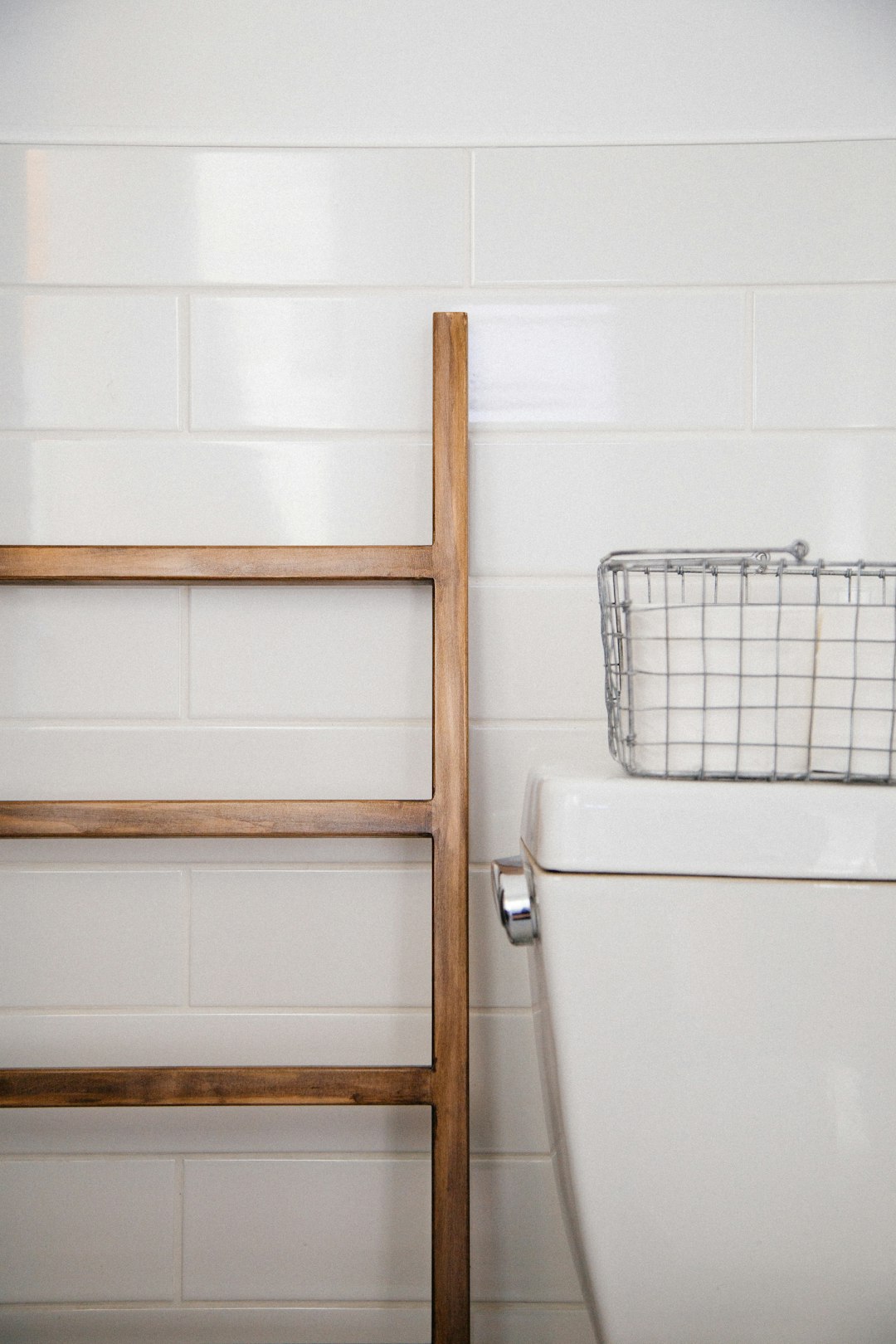
And that was really hard on both of us, and it continues to be, when I flare it's always hard on our relationship it always takes a toll.
Ali Feller: I will give him a lot of credit for learning so much about this disease. That from the minute we met, he knew I had it. I was fortunate that the way that we'd met was through his company (he owns an advertising agency and they were doing a marketing campaign for a local running store).
I was one of the real runners they cast in the campaign, and part of it was raising money for a charity of your choice. I chose Crohn's and Colitis Foundation, so right away he knew just from me being the talent "okay she's raising money for CCFA, let me google that". So he immediately took it upon himself to learn what this disease was.
Of course you don't really understand it until you see if first hand, but it didn't take long for that to happen, and he's been a trooper. I think more of that might be on him than it is on me, like I'm very emotional he's very practical, he will read everything he can find and I'm like "I will lay here on the couch and cry and feel bad for myself."
Ali Feller: So sometimes that balance makes things harder, and it doesn't feel like balance so much as were in opposition but ultimately we have a super open dialogue. He just kind of always knows what's going on. He doesn't baby me which sometimes I wish he did, but I think it’s good that he doesn't.
I get that enough from other places in my life, so yeah, it's been hard I'm not going to lie. Even this past, this past year when I was so sick, was really hard because we're married now, we have a dog, were trying to do all these cool things and my health prevents that. It's not so much the health as it is my, how I handle it mentally, so I should add that any issues we've ever had, any tough times it's not because I'm physically sick. It's because of how I deal with things emotionally. I get combative, I get upset, I close off, I lash out like you know all those super rational ways to deal with things.
Lilly Stairs: But you know when you're going through something like that, it's really difficult, the mental toll that...
Ali Feller: Oh yeah.
Lilly Stairs: Physical illness takes is, is it really can be just, its just as bad as the physical piece.
Ali Feller: I think it's worse.
Lilly Stairs: Yeah.
Ali Feller: I absolutely think it's worse, like at this point does the cramping and the urgency...does all that totally suck? Absolutely. But you know what if I were going through that and I knew that my mental game was all good, and that I wasn't going to be depressed about how I was feeling, and that it would cause such anxiety, it would still be a pretty unfortunate situation, but it would be so much better if it didn't affect me so much emotionally.
Lilly Stairs: Yeah, yeah. Wow well I, and again thank you for your honestly it's really refreshing and I think that the mental, the toll that our chronic illness takes mentally is something that we also don't discuss enough. I mean that's a whole other piece of this.
Ali Feller: Oh yeah.
Lilly Stairs: So thank you for sharing that.
Ali Feller: It's like listed as a side effect.
Lilly Stairs: Yeah.
Ali Feller: You know it's like, you know anywhere you go and read about Crohn's disease it talks about the diarrhea right? It talks about the diarrhea for like 19 paragraphs and then it's like other symptoms may include fever, nausea, weight gain, weight loss, uh blah, blah, blah, blah and depression.
Lilly Stairs: Mm-hmm.
Ali Feller: It's like thrown in there at the end, which I, you know that's how they've always done it so, fine. But like that needs to be moved way up and needs to be addressed more.
Like I've never, I've had a doctor ask me how I'm feeling, and ask about my symptoms, I have never had a GI who says
"Emotionally how are you dealing with this?"
And I know it's because that's not their specialty - their specialty is in my intestines. I need to see someone else for all the other stuff, and I do, but yeah we should be talking about it more. There is no reason not too.
Lilly Stairs: Absolutely, oh my gosh we could do a whole other podcast on this.
Ali Feller: I know, yeah.
Lilly Stairs: A whole other podcast. So I also, I this whole time I mean I'm talking to Ali on the Run and I haven't even asked about your running and your marathons.
Ali Feller: Yay!
Lilly Stairs: And your 5k's and all that you do with that. Wanna tell me a little bit about how that's been and I know that's been, certainly an empowering piece of your journey and such a big part of your identity and so I would be remiss if we didn't chat about that a little bit.
Ali Feller: Yeah, so I was not a runner growing up, I always state that first for anyone who thinks like I'm not a runner. I was not a runner either. You can start being a runner at any age at any point in your life.
So I started running after I graduated from college and moved to the city my roommate, who I found on craigslist, I didn't know her, she had all these medals on her wall and she explained that they were from running half marathons and I think I was like "Ooh shiny things, I want one!"
And eventually I got some running shoes, my first run lasted about all of about 30 seconds, because I didn't know how to pace myself and was so winded.
Ali Feller: But I was hooked right away, there was once I decided I wanted to start running I loved it, I learned how to pace myself, I eventually ran a mile.
I ran four miles and I've now run seven marathons and a lot of half marathons and lots of 5k's and shorter stuff, I think any distance you run is great. We always give glory to the marathons but any distance is amazing, and yeah it's funny that you said that - it's such a part of my identity.
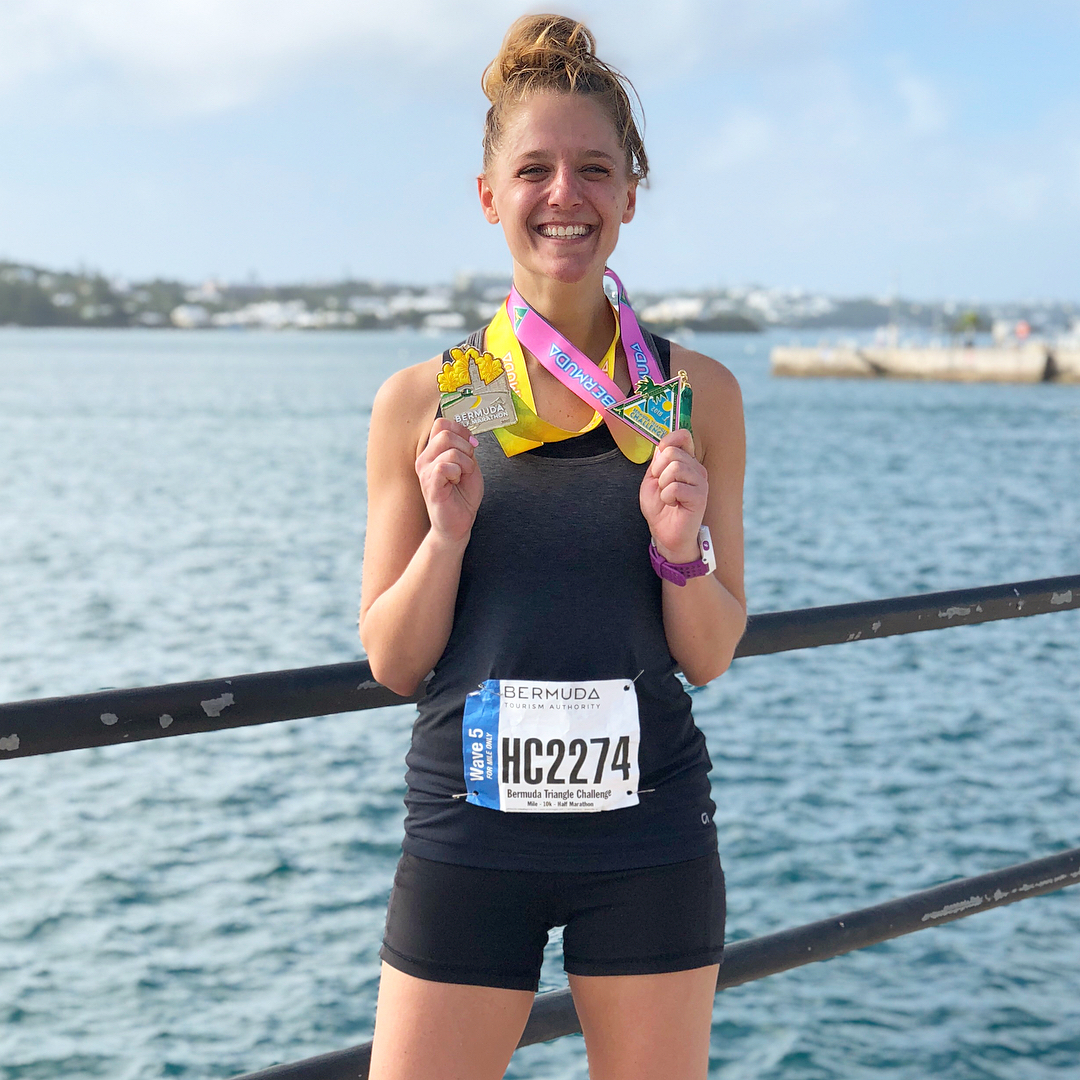
That is something that I've really battled with over the past few years where I put so much of myself into running and loving running, and you know I started my blog Ali on the Run and then I was Ali on the Run. And I've been Ali on the Run for eight years now, so when I'm sick and I can't run I felt like "Who am I now?"
Lilly Stairs: Mm-hmm.
Ali Feller: You know when I had my dream job, but I had to take medical leave because I was so sick. So I wasn't Ali the Editor and Chief - I also wasn't Ali on the Run. and I was like home on my couch feeling like "Who am I?"
It was really scary for me and it felt like this identity crisis of I figured out exactly what I want, I'm doing what I love. All of a sudden I don't have those things, I'm not doing those things, and it was a very scary lesson for me in learning that I can't let any part of my life be my entire identity.
So like I am Ali on the Run, and I am a freelance writer, and I host a podcast, the Ali on the Run show which I love so much, but I'm constantly reminding myself to have kind of my fingers and toes dipped in areas I'm passionate about that I can still have if I'm sick, or if something changes or and you know especially with running, you get injured like anything can happen.
Ali Feller: And so I am absolutely, I'm Ali on the Run and I love being Ali on the Run and hate when I can't be Ali on the Run and that's something that I've had to learn how to deal with when I get sick is, you know, I try to run through flares as much as I can because it mentally does so much for me.
Getting to be outside and getting to break a little bit of a sweat and running somewhere that is not the bathroom, but usually eventually all flares end up totally sidelining me from physical activity. Which you know, that sucks, all I want in life is to be active I wanna, I wanna run 20 hours a day just because I love seeing the world that way, but that again is one of the realities of having a chronic illness that I hate that I have to accept. But am constantly learning how to be okay with it.
Lilly Stairs: Sure. Well, yeah thank you for sharing that and I think that's something that a lot of us can learn from and not tying your identity to just this one part where we all have so many pieces to us and...
Ali Feller: Right.
Lilly Stairs: That goes for illness too right, like that's a piece of us but its not all of us.
Ali Feller: Absolutely.
Lilly Stairs: And so to remember that, that's not your identity there is so much more to you and tap into those different hobbies and passions and being with your family and friends and letting that be apart of your identity.
So again thank you for sharing that and if you haven't yet please do check out Ali's podcast, Ali on the Run, its fabulous she's an amazing host that I look up too.
Ali Feller: Thank you.
Lilly Stairs: So I'd love to end our show by asking you what Patients have Power means to you.
Ali Feller: Ooh, well the first thing that comes to mind is the fact that we are really strong for having chronic illnesses and getting through the day, and some days that means like:
- Going out and crushing it
- Getting all the work done and being a force in whatever industry we're in
- Running those marathons
And all that good stuff. Other times it means waking up and getting to bedtime.
Lilly Stairs: Mm-hmm.
Ali Feller: And that might be all that happens, and I've had those days, and I've had the really good crushing it days, and ultimately I think that we don't give ourselves enough credit for the strength that we have.
I think having a chronic illness can make us feel really weak and powerless because we don't have control of our bodies as much as we want to and that so hard, but being able to live with what we all live with, that makes us strong and that gives us a lot of power.
Lilly Stairs: Ah, I love it! What a perfect way to end the podcast. Thank you so much for joining us today Ali.
Ali Feller: Thank you for having me this was great, I love hearing your voice.
Lilly Stairs: Ditto. We will chat again soon, thanks all for joining us, have a wonderful day.

Connect with Ali on her website, the Ali on the Run Show podcast, twitter, and instagram.

